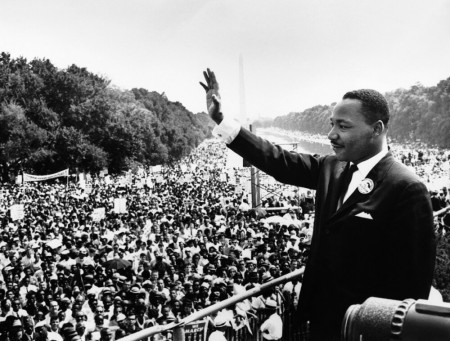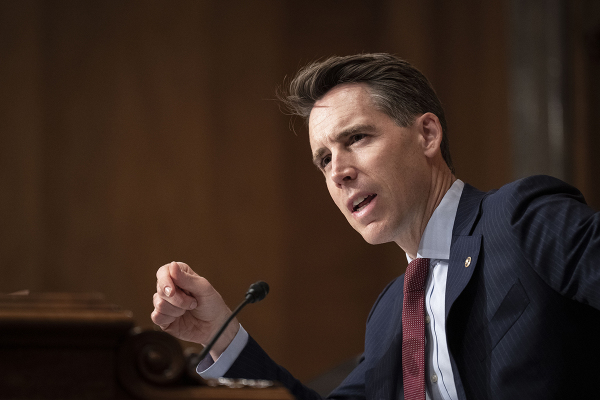Black pastor who marched with MLK shares pains and joys of civil rights activism

When the people marched with Dr. Martin Luther King Jr., they were happy, 82-year-old Rev. Bill Owens told The Christian Post on Monday. They thought about a future with freedom for children yet unborn, a future where black people could do anything.
When he was 18 years old in college at Tennessee State University, Owens marched with King. He was part of the civil rights movement from 1957 onward. And today, Owens leads the Coalition of African American Pastors, a national black-led organization dedicated to the propagation of biblical values.
At the start, he wasn’t part of a centralized civil rights group. Spontaneously, he said thousands of African American college students organized marches, protests and sit-ins.
“Well, most of it was just students. We were happy. There was no idea of any danger, people acting crazy. We were all marching in love and peace,” he recalled. “We were laughing with each other. It was almost a religious fervor. It was really like a religious fervor. We were happy, we knew we were bringing about change.”
To take part in a civil rights march, Owens said he had to prove he could take violence without giving violence back. Before students could march, they would take a class. They would sit on a stool and other students would curse, hit and slap them. Their job was to not fight back.
“We knew we were fighting for something. I think we were so involved and we were just ready for change. We knew the people who were hitting us were getting us ready to go,” said Owens. “We were willing. We knew we were preparing for something better.”
Nashville wasn’t as dangerous as other Southern cities, according to the longtime activist. However, he said racists burned down the house of an attorney working for the movement in the city.
The state of Tennessee put pressure Owens’s university president Walter S. Davis, who in turn told his students to be cautious. Even so, the students weren’t afraid. They had bigger priorities, Owens remembers.
“We wanted to see a change. Tennessee State was the only state school I could go to, and we wanted change,” the father of six said. “What would our children be like? How would they live? What would they be treated like?”
In the late 1950s and the 1960s, the American civil rights movement wasn’t about anger over injustice or fear of oppression, Owens said. It found hope and joy in making a better future that had once seemed impossible. People didn’t feel discouraged, but happy, he assured.
“[The civil rights movement] gave hope to black America,” the pastor said. “We looked at it different from the way our parents looked at it. Our parents looked at [racism as], ‘This is the way it is in America.’ We looked at it differently. We can do this and we’re willing to pay the price for it. Our parents would caution us [to] be careful. My mother cautioned me to be careful. We were careful. We didn’t have any fear. We didn’t have any fear.”
Owens’ wife, Betty, worried for him during the marches. Fortunately, Owens said he was never attacked during a march.
“It was a different time,” he said. “All of the violence you see now and the dissension and the groups that oppose, it was a different climate.”
Civil rights marchers met in churches and protested with strong support from the Church. People in the group knew each other and often had a strong sense of community, he said.
The courage Owens and others took from the civil rights movement had immediate results in their own lives, he contends.
The activist recalled one day when he came home to his house from college to find an old, white insurance collector talking with his mother. The man didn’t take off his hat to respect Owens’ mother and called her by her first name, he recalled. Owens said that the self-respect he gained in the civil rights movement motivated him to confront the man.
“Sir, would you take your hat off? She is not ‘Charlotte’ to you. She is ‘Mrs. Owens’ to you. And when you come here, don’t ever come in with your hat on and don’t ever call her by her first name. Don’t get common with her,” Owens detailed of the conversation.
He said the man obeyed his wishes.
Dr. King was the reason that the civil rights movement happened when it did and in the way it did, Owens believes.
“We thought big,” said Owens. “Dr. King, in all he did, he inspired people. People were inspired that there could be change. I think it happened when it did because of Dr. King. When I look at the landscape, it took a Dr. King. We saw the sacrifice he made and he could speak.”
King’s commitment to nonviolence made the civil rights movement effective and powerful, Owens asserted. It also saved lives on both sides.
“[If we had been violent,] a lot of us would have been killed. And that’s why Dr. King stood for peace. He stood for peace,” stressed Owens. “I don’t know where [modern civil rights activists] got it that they had to be violent. We made changes. What changes are they making? Dr. King with his leadership turned this country around.”
In later years, Owens talked with King, he said. King was very warm and friendly, even to strangers.
“I think mostly what Dr. King did was listen to you. He wasn’t giving lectures, but whatever you wanted to talk to him about he was there,” he said.
Owens was in Memphis the day King died, April 4, 1968.
“I was in Memphis downtown in my lawyer’s office when the news came that Dr. King had been shot,” Owens told CP. “They got it wrong. They said that a black man did it, but that was not true. A white gentleman stopped me and said, ‘Did you hear that Dr. King was killed?’ I was shocked, absolute shock. I’m sure you know that they had a riot in Memphis. We stayed at home because we didn’t want to get involved. We were very angry.”
Owens said he thinks about his time in the civil rights movement every day.
People don’t have to sleep at segregated hotels, drink from different water fountains or eat at segregated restaurants anymore in the U.S.
In that sense, the movement succeeded. But in other ways, the African American community hasn’t yet reached the dream King marched for.
“I asked a friend of mine two or three years ago, what happened? I asked him, ‘What happened with the civil rights movement? What has happened to our society? Why don’t we have more black doctors? Why are black boys still going to prison?’” Owens remarked.
He argues that the way to King’s dream doesn’t go through movements like Black Lives Matter. These movements lack the spirit of love that gave life to the movement of the 1960s, he said.
“If I was sending my children off to college now, I would caution them right now to be very careful. So much is going on right now that is much worse than the civil rights movement. It doesn’t have the light that the civil rights movement had,” Owens believes.
“We were doing what we were doing out of love and looking for the future of our children and the country.”
Today’s marchers aren’t happy, Owens argues.
“There’s a difference between hate and love,” he said. “And when you preach love all the time, there’s a big difference between the spirit of hate and love.”





















